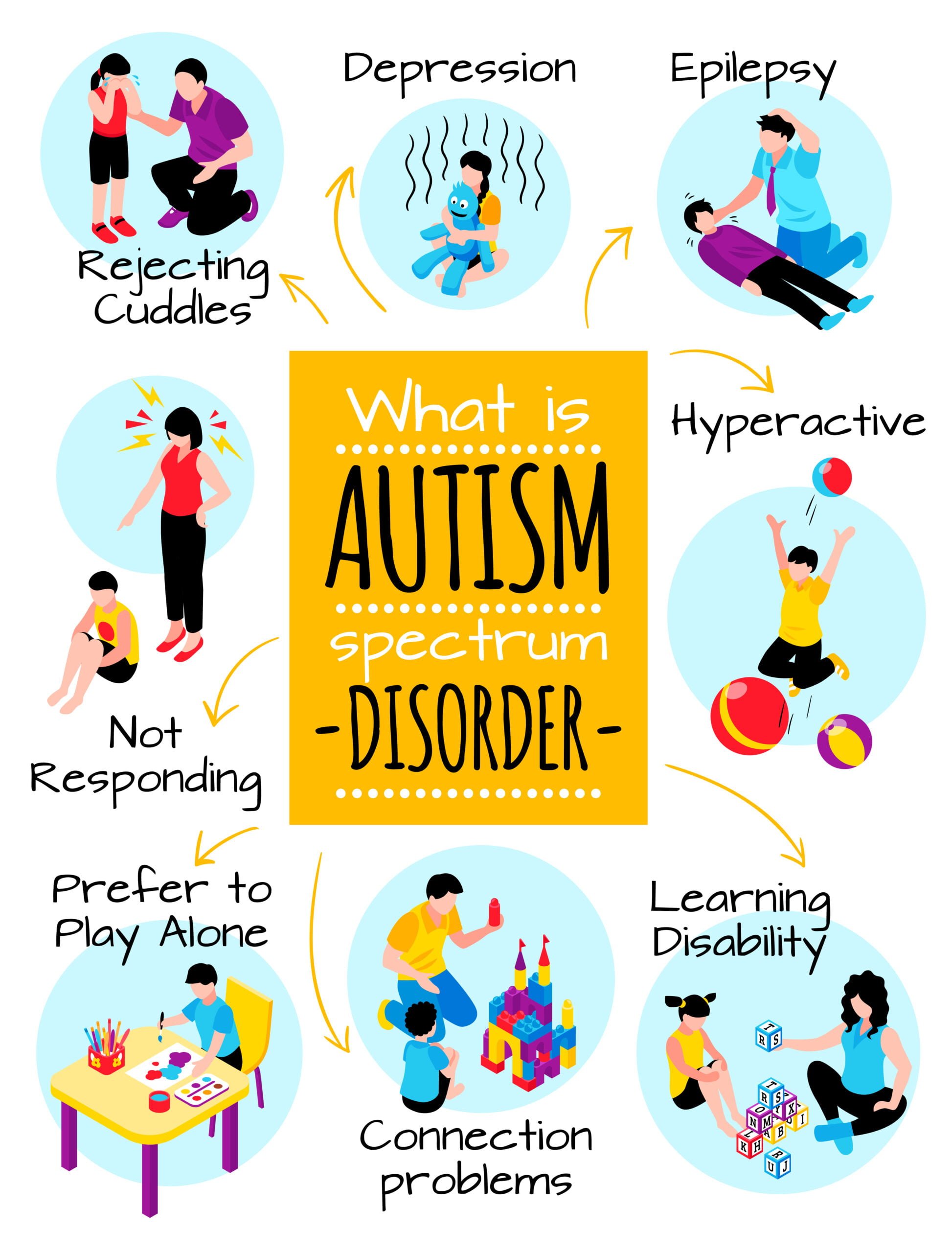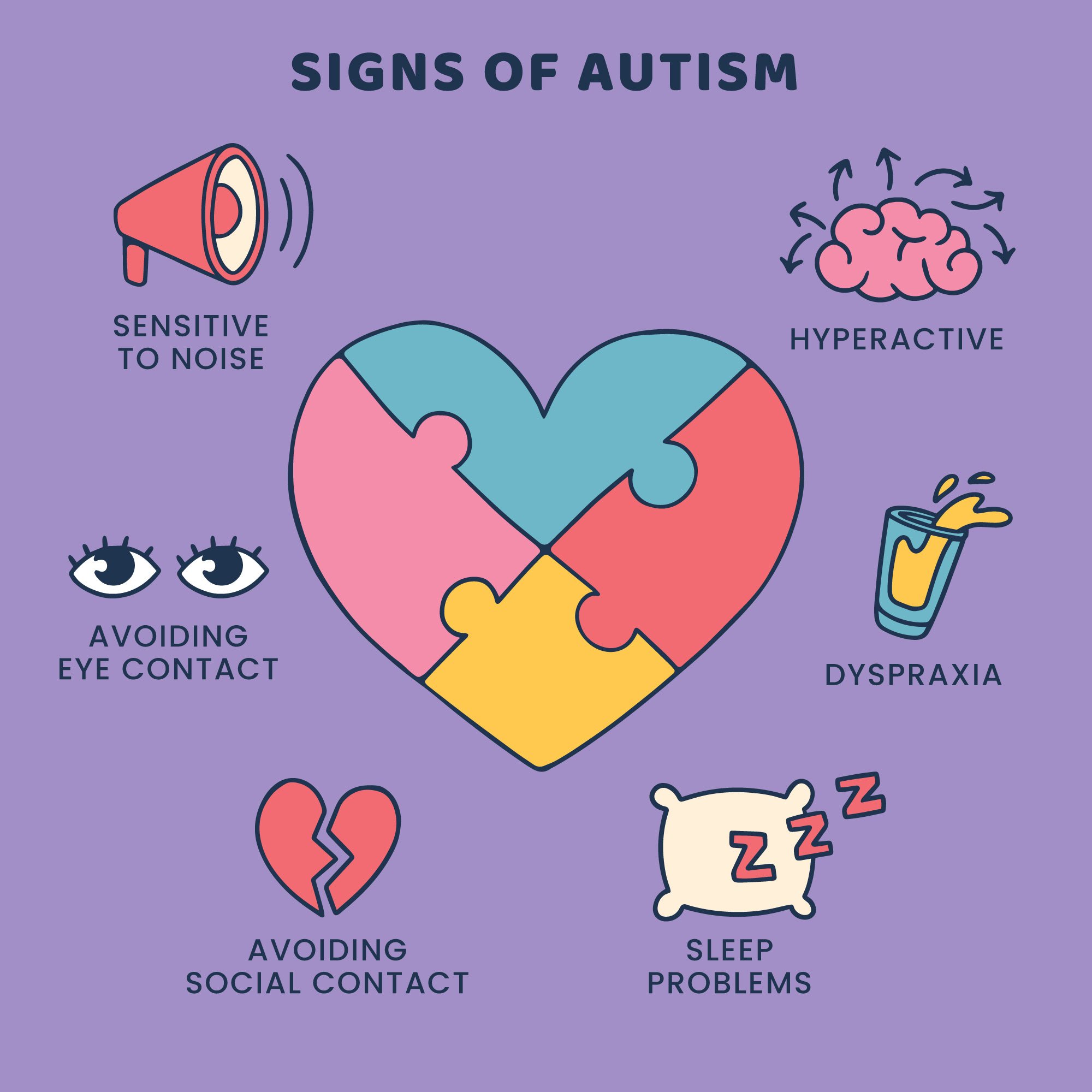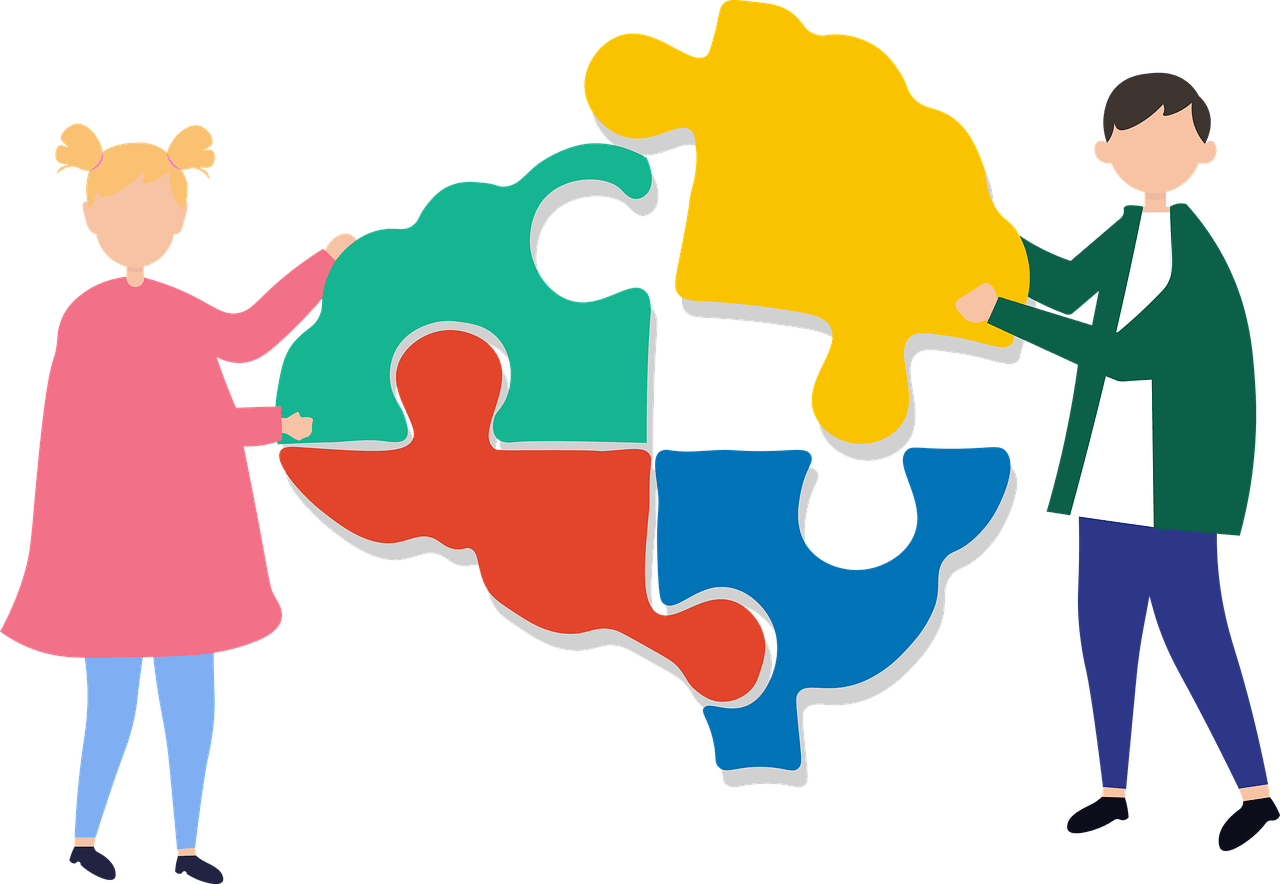Discover everything you need to know about autism, from types to its causes and symptoms. Learn how treatments can make a difference!
Table of Contents
Toggle
What is Autism?
Autism, or autism spectrum disorder (ASD), impacts brain development and influences how an individual interacts and communicates with others, lead to challenges in social interaction and communication skills.
This condition is characterised by a spectrum of challenges and strengths. For instance, some individuals with this condition might excel in artistic, musical, or mathematical abilities, while others may face difficulties with social cues or exhibit repetitive behaviours.


What are the types of Autism
It is categorised into three primary types.
-
Autistic Disorder:
Commonly known as classic autism, this variant is marked by substantial delays in language skills, difficulties in social interaction and communication, distinctive behaviours and interests, and frequently accompanying intellectual challenges.
-
Asperger Syndrome:
This mild form of this disorder presents with fewer social interaction difficulties and peculiar behaviours and interests. Individuals with Asperger Syndrome typically do not face significant challenges with language or cognitive development.
-
Pervasive Developmental Disorder:
Often referred to as atypical autism, this category is applied when an individual displays some characteristics of autistic disorder or Asperger syndrome but does not fully meet the criteria for either. Symptoms are generally milder and less extensive.
If you or someone you know is struggling with the challenges of autism and needs professional guidance, contact our psychologists by clicking here.
What are the causes of Autism?
While the precise origins of this remain unclear, it is widely acknowledged to arise from a combination of genetic and environmental factors.
Genetic Factors:
Numerous genes are implicated in this. Some may increase susceptibility, while others influence brain development or neural communication.
Environmental Factors:
Elements such as viral infections, exposure to certain medications during pregnancy, and environmental pollutants are under investigation as potential triggers for autism.
What are the 3 main symptoms of autism?
According to research, Symptoms may vary widely but primarily involve issues with social communication, behaviour, and flexibility in thinking. Key signs include:
Communication Difficulties:
Challenges may include delayed speech development, difficulties in initiating or sustaining conversations, and a literal understanding of language.
Social Interaction Challenges:
People may face difficulties in establishing friendships, understanding social cues, and empathising with the emotions of others.
Repetitive Behaviours:
Common behaviours include repeating words or actions, excessive adherence to routines, and a pronounced preference for sameness.
Feeling overwhelmed? Connect with our experienced psychologists for support by clicking here.
What are the risk Factors for autism?
Research says that Some Certain factors may heighten the risk of developing this, including:
Genetic Inheritance:
The likelihood of this condition increases in families where there is already one child with the condition.
Age of Parents:
Older parental age is slightly linked with a higher risk of having a child with this.
Premature Birth:
Infants born before 26 weeks of gestation may face a higher risk of developing this condition.

How can you prevent?
As the exact causes of this condition are still being determined, prevention strategies focus on addressing known risk factors rather than preventing autism outright:
Prenatal Care:
Optimal health during pregnancy is crucial. This includes avoiding harmful substances and certain medications.
Early Intervention:
Though it does not prevent, early and intensive behavioural interventions can significantly improve outcomes by fostering skills development.
How to diagnose Autism?
Autism spectrum disorder test involves a detailed behavioural and developmental evaluation since no definitive medical tests currently exist for autism:
Developmental Screening:
Regular paediatric check-ups assess basic developmental skills. Delays in areas like speech or social interaction might prompt further assessment.Comprehensive Diagnostic Evaluation:
This evaluation might include detailed behavioural assessments, parental interviews, and medical tests such as hearing and vision screenings to exclude other conditions.
Parents are also encouraged to monitor and report any signs such as limited social interactions or repetitive behaviors, as early detection is key to managing autism effectively.
What are the complications?
Although not life-threatening, it can lead to complications affecting daily functioning and quality of life:
Social Isolation:
Difficulty with social interactions can cause loneliness and isolation.
Educational Challenges:
Learning difficulties are common, complicating educational achievements.
Employment Difficulties:
The social and communication challenges associated with this can make finding and maintaining employment challenging.
Mental Health Conditions:
In individuals with this may increased risk for conditions like anxiety and depression.
Understanding these challenges is crucial for providing effective support and improving quality of life for those affected with this condition.

What are the treatment options for Autism?
While no cure exists for this, various treatments can help manage symptoms and improve daily functioning:
Behavioural and Communication Therapies:
These therapies address social, behavioural, and language difficulties, focusing on reducing problematic behaviours and teaching new skills.
Educational Therapies:
Structured educational programs involving a team of specialists can significantly benefit children with ASD, enhancing social skills and communication.
Family Therapies:
These therapies equip families to better interact and support their children, focusing on social interaction skills and daily living strategies.
Medications:
Although no medications can cure, some can alleviate symptoms such as hyperactivity, anxiety, or behavioural issues.
Navigating treatment options can be difficult. If you need personalised advice, get in touch with our psychologists by clicking here.
If you are going through a tough time and need someone to talk to, we are here for you. Reach out to us for a heartfelt chat or a comforting call with one of our caring psychologists. You are not alone in this journey, we are always here for you.
References
Early Behavioral Intervention Is Associated With Normalised Brain Activity in Young Children With Autism
https://www.jaacap.org/article/S0890-8567(12)00643-0/abstract
Parental Age and the Risk of Autism Spectrum Disorders: Findings from a Multinational Case-Control Study
https://onlinelibrary.wiley.com/doi/abs/10.1002/aur.233
Mental Health Issues in Children and Adolescents with Chronic Illness
https://acamh.onlinelibrary.wiley.com/doi/full/10.1111/j.1469-7610.2007.01851.x
Patterns of Neural Connectivity in Autism Spectrum Disorder




